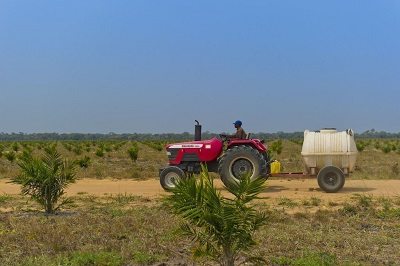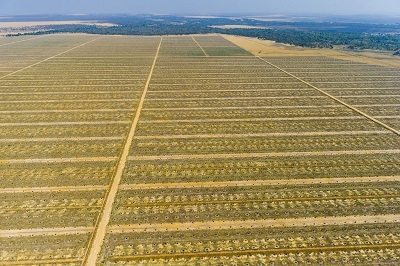

REGISTERED OFFICE
Plot 4970, Manda Road,
Industrial Area,
Lusaka, Zambia
Tel:+260 211 369 000
Fax:+260 211 369 050
Postal Address:
Private Bag 17, Woodlands,
Lusaka, Zambia
We value your feedback and comments and are always eager to hear from you. Whether you have a specific query or simply want to share your thoughts, feel free to reach out. You can contact one of our representatives directly or fill out our thoughts and questions form for a prompt response.
For media inquiries, please contact media@zambeef.co.zm
For investor relations inquiries, please contact ir@zambeef.co.zm
For general inquiries , or if you would like to become a Novatek agent, please fill out our feedback and questions form.
Zambeef Products Plc has zero tolerance towards corruption. We remain committed to being a responsible corporate citizen and are dedicated to maintaining integrity and transparency in our community. To safely and anonymously report any unethical behaviour or misconduct that you have witnessed or experienced, please fill out the feedback and questions form with as much detail as possible. Every report is handled with the utmost seriousness and discretion.
07/09/2015
Zambeef division aims to empower the local community through sustainable growth
LUSAKA, ZAMBIA – Zambeef Products is working with small-scale farmers in Mpika to set up an outgrower scheme to feed into its 20,000-hectare Zampalm plantation.
The project is aimed at helping local farmers to participate in the palm oil production business, which will contribute to the substitution of the 70,000 tonnes of cooking oil currently imported into the country.
Under the scheme, Zampalm – which is a division of Zambeef Products – will be providing farmers with the seedlings, training and inputs required to manage their farms.

“We are looking to get the community involved in the project as a way of generating employment and sustainable economic growth in the area. The palm plant is the most efficient oil producing plant and can be harvested for 25 years and as long as the tree continues to yield a harvest there can be assured of an income source and the community can be self-sustaining,” said Zambeef chairman Dr Jacob Mwanza.
Farmers now have an alternative crop apart from the traditional cassava and maize crops grown in the area as well as an alternative source of income. The company plans to buy the palm oil fruit from the farms to be processed into crude oil at its crushing plant, providing a ready market for the harvest.
“The idea is to buy the harvested seeds from the farmers, process it into crude oil at the crushing plant and then supply the market for further processing into edible oils and other products,” explained Dr Mwanza.
Palm oil is the world’s most used vegetable oil and has many different uses in addition to cooking oil. Palm oil and its derivatives are found in foods such as margarines and ice cream, used as a thickener, preservative and antioxidant; as well as in personal care products such as shampoo, and cosmetics; industrial products such as lubricants paints and inks; and as a renewable fuel.
Nearby Kapumfi School has already become a beneficiary of the scheme, having received 100 seedlings in the initial phase of the project.
The seeds require special attention; they are grown in the nursery for three months before the shoots can be transferred into beds in the main nursery for 18 to 20 months. Planting in the field is only done once the plant is two-years-old and is able to withstand the elements on its own. The right amount of depth is very important as the plant flowers at the base, and planting too deep risks will damaging the plant.
“The demand for edible oils in Zambia is huge and will continue to grow as the country develops; and Mpika should be the palm oil heart of Zambia as the sandy soil here is ideal for the plant. We would like to see the community benefit and make palm oil production a characteristic of the area just as Mwinilunga is for pineapples or Mazabuka for sugar,” said Dr Irwin.

The Zampalm project was launched in 2009 and currently has some 370,900 palms planted over an area of 2,612 hectares in the main plantation, with another 39,000 seedlings in the main and pre-nursery. Zampalm owns 20,238 hectares of titled land, and the intention is to plant a total of 4,812 hectares in 2017 and similar areas in subsequent years as the business grows.
A two-tonnes-per-hour crushing mill was built this year, with plans for a second two-tonne plant in 2017 and a further 10-tonne plant in the following year, taking crude palm oil production up to 17,000 tonnes a year.
The total investment cost is estimated US$41.5 million, of which Zambeef has spent US$20 million so far. At current prices the average production of crude oil of 3 to 3.5 tonnes per hectare could generate more than US$170 million in revenue over the next decade.
The market for edible oils in Zambia, of which palm oil is one component, is estimated at 120,000 tonnes per year, and this is expected to continuing growing as the country develops further.
More than half of Zambia’s edible oil consumption is imported from the Far East, East Africa and South Africa.
Once fully operational the plantation will contribute to substituting 70,000 tonnes of cooking oil imported into Zambia, saving the country around US$70 million (K511 million) in foreign exchange outflows every year.
While Zambia is not a traditional growing region for palm oil, lower yields are expected to be outweighed by the competitive advantage of being closer to consumers in the region given that the cost of importing edible oil from the Far East can account for around a third of its retail price.
In addition to the commercial and economic benefits of the Zampalm plantation the initiative has provided a number of social and environmental benefits, including the creation of employment and infrastructure in the remote community in the area, which has high poverty levels.
Traditionally, the Bisa people in the sparsely populated area of Senior Chief Kopa were fishermen, hunters or cassava farmers. Since Zampalm was launched there are now shops springing up and economy growing, changing livelihoods.
“People can educate their children and improve their houses, with thatched roofs replaced with iron sheets; some children are now going to high school; people can buy new clothes; and health has improved,” said Zampalm Plantation Manager Trusted Mwiinga.
-Ends-
About Zambeef Products Plc
Zambeef Products Plc is the largest integrated agribusinesses in Zambia.
The group is principally involved in the production, processing, distribution and retailing of beef, chicken, pork, milk, dairy products, eggs, stock feed and flour. The group also has large row cropping operations (principally maize, soya beans and wheat), with approximately 8,350 hectares of row crops under irrigation and 17,000 hectares of rain-fed/dry-land crops available for planting each year. The group is also in the process of rolling out its West Africa expansion in Nigeria and Ghana, as well as developing a palm project in Zambia.
It slaughters more than 80,000 beef cattle and 6 million chickens, and processes 8 million litres of milk per year. The company has 122 retail outlets throughout the country, along with three wholesale depots.
More information is available at www.zambeefplc.com.
About Zampalm
Zambeef Products plc subsidiary Zampalm Ltd is developing a 20,000 hectare palm oil plantation in Mpika District, of which some 2,612 hectares is already planted as part of a rolling plan of expansion. A crushing plant has been installed, with production expected to begin in September 2015.
The total investment cost is estimated at US$41.5 million, of which Zambeef has invested US$20 million to date. The project is expected to generate more than US$170 million in revenue over the next decade and save the country some US$70 million per year in foreign exchange outflows through import substitution.